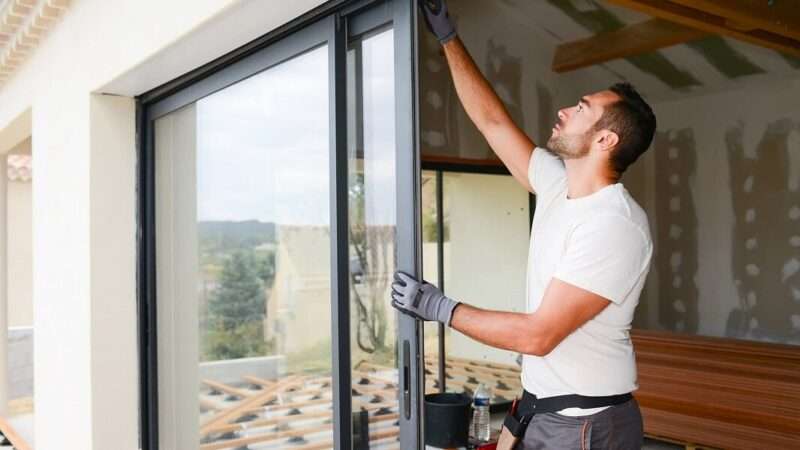10 Tips for Renovating Your Home: The Ultimate Guide
Home renovation projects can be overwhelming, especially if you are a novice. But, with some guidance, you can make the most of your home renovation project. This comprehensive guide has compiled ten essential tips that will make your home renovation project smoother and with fewer headaches. From budgeting and planning to choosing the right materials, this guide will make your home renovation project successful. Whether you’re looking to update the kitchen, bathroom, or even the entire house, these tips will help you make the most of your home renovation project. So, let’s get started!
Set a realistic budget.
Commercially prepared renovation budgets are a convenient way to create a plan for your project. You can use these budgets to track your spending and get a sense of your project’s scope. Just make sure to set realistic expectations for your budget, note the numerous variables such as materials, labour, DIY skills, and more that come into play, and have a contingency plan in place. You may also find it helpful to speak with other homeowners who have recently renovated their homes. Homeowners who have recently renovated their homes can give you advice on what was involved in their renovations, what they were able to accomplish, and what they had to leave out. Furthermore, renovations are unique, so one homeowner’s budget may not apply to yours. Some homeowners notice that they end up spending more than they initially anticipated.
Prioritise and plan your renovations.
The first step in setting up a plan for your renovations is prioritising the projects you want to complete. This will help you determine which renovations you want to achieve first. Once you have prioritised the renovations you want to complete, you can set up a plan for how you want to achieve them. This plan should include timelines for each project and any costs associated with the projects. You may find it helpful to create a renovation budget that outlines the planned costs for each renovation as well. This will help you determine if your renovation budget is realistic or if there is room for a little extra. Once you have prioritised and planned your renovations, you will be better equipped to choose the right contractors. It’s important to hire the right contractor for your job. To ensure the contractor you choose is right for the job, ask around and compare quotes to determine who offers the best price. Also, ensure the contractor is licensed and insured and has experience in the type of renovation you are undertaking.
Choose the right contractors.
With so many renovation projects, it can be difficult to know who to choose. However, if you know what to look for, it’s easier to narrow down the list of candidates. When choosing a contractor, there are a few key things to keep an eye out for. The contractor’s history: Is their track record good?
What past projects have they worked on? What type of materials have they used in the past? The contractor’s experience: Is the contractor experienced in the type of renovation you are undertaking? Do they have any references who know the job well and have worked with them in the past? The contractor’s proposal: What will you get for what you are paying? What are the risks involved? Is the proposal detailed enough? How are the contractors’ rates determined?
Research materials carefully
It’s easy to fall for the allure of a low-priced material, but it’s important to research materials carefully. Look for low-cost materials that are also environmentally friendly, such as bamboo boards or cork. It’s also important to look closely at the composition of the materials you are considering. Some materials may have a higher price tag, but they are safer, last longer, more durable, or more environmentally friendly than other materials. When researching materials, you may consider hiring a home renovation cost estimator. A home renovation cost estimator can help you estimate your project’s costs and ensure you don’t miss anything.
Measure and plan the layout of your renovation.
Once you have prioritised and planned your renovations, you will want to measure the layout of the rooms you want to renovate. This will allow you to design around the size of the room. You may also want to measure the layout of your house. This will help you determine the best layout for your house before you start your renovations. It will also help you choose the best layout for your stairs, entranceway, and any other areas where you want to incorporate design elements. Before starting the renovation project, ensure you know where everything is in the room. This will help you to plan where you will be placing new materials and where you will be drilling holes for wiring or plumbing. It will also help you identify any areas you want to redesign.
Be prepared for unexpected costs.
Home renovations are often expensive, and unexpected costs are common. This means you need to be prepared for them. This means setting aside a monthly budget for the unforeseen costs of your home renovation project. It may be necessary to hire a contractor who specialises in a certain type of work, such as electrical work or plumbing, or it may be necessary to hire more than one contractor for certain jobs. It may be beneficial to hire a general contractor who handles all types of work and then Hire subcontractors for specific projects. It may be necessary to wait until the renovation project is complete before fully researching the best insurance options. It may also be necessary to leave some items in the project undone because of the high cost of materials. Be ready for these and other costs that may come up during your home renovation project.
Design with resale in mind
While many renovations are focused on creating a beautiful space in your home, there also may be a financial benefit to your project. When renovating your home, you may want to consider how your renovation will affect your resale value and how it will affect your mortgage payment. When renovating, keep in mind the resale value of your home. Ultimately, this will help you make financial decisions about the renovation and ensure the project is worth the cost. Rethink a renovation project if it will make your home less desirable to prospective buyers. This may mean rethinking a home renovation project that is too expansive or will negatively impact your resale value.
Prepare your home for the renovation process.
During the renovation process, be sure to leave your home in the same state as when the contractors leave. This will help you to avoid any potential liability issues and help you to keep track of your finances. This will also make it easier to track the renovation’s progress and any issues that may arise. This will also help you to keep any receipts of the renovation project should your contractor fail to pay you. When renovating your home, you may want to consider hiring help. This may be helpful if you are renovating an ample space, have a project that requires a lot of attention to detail or are remodelling an area of your home that is difficult to reach.
Follow safety guidelines
During the renovation process, it’s important to follow safety guidelines. This will help you be safer and prevent potential accidents or injuries. This will also help you to ensure your renovation project is completed on schedule. It’s important to wear safety gear when working around electricity and gas pipes. You may also want to invest in D-shaped or “drop-like” earmuffs for protection when working with loud sounds or high-energy sources.
Summarise
Home renovations can be exciting, but they are also challenging. The first step in making your home renovation project a success is setting a realistic budget and prioritising and planning your renovations. You can make the most of your home renovation project with a bit of planning.






